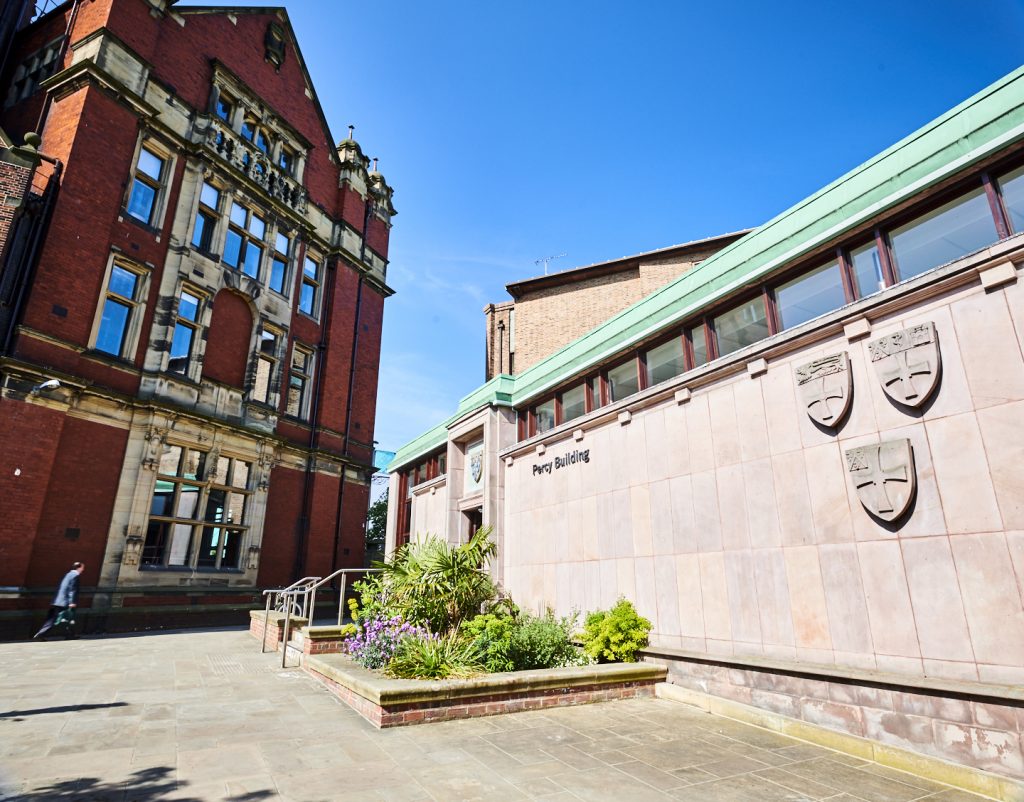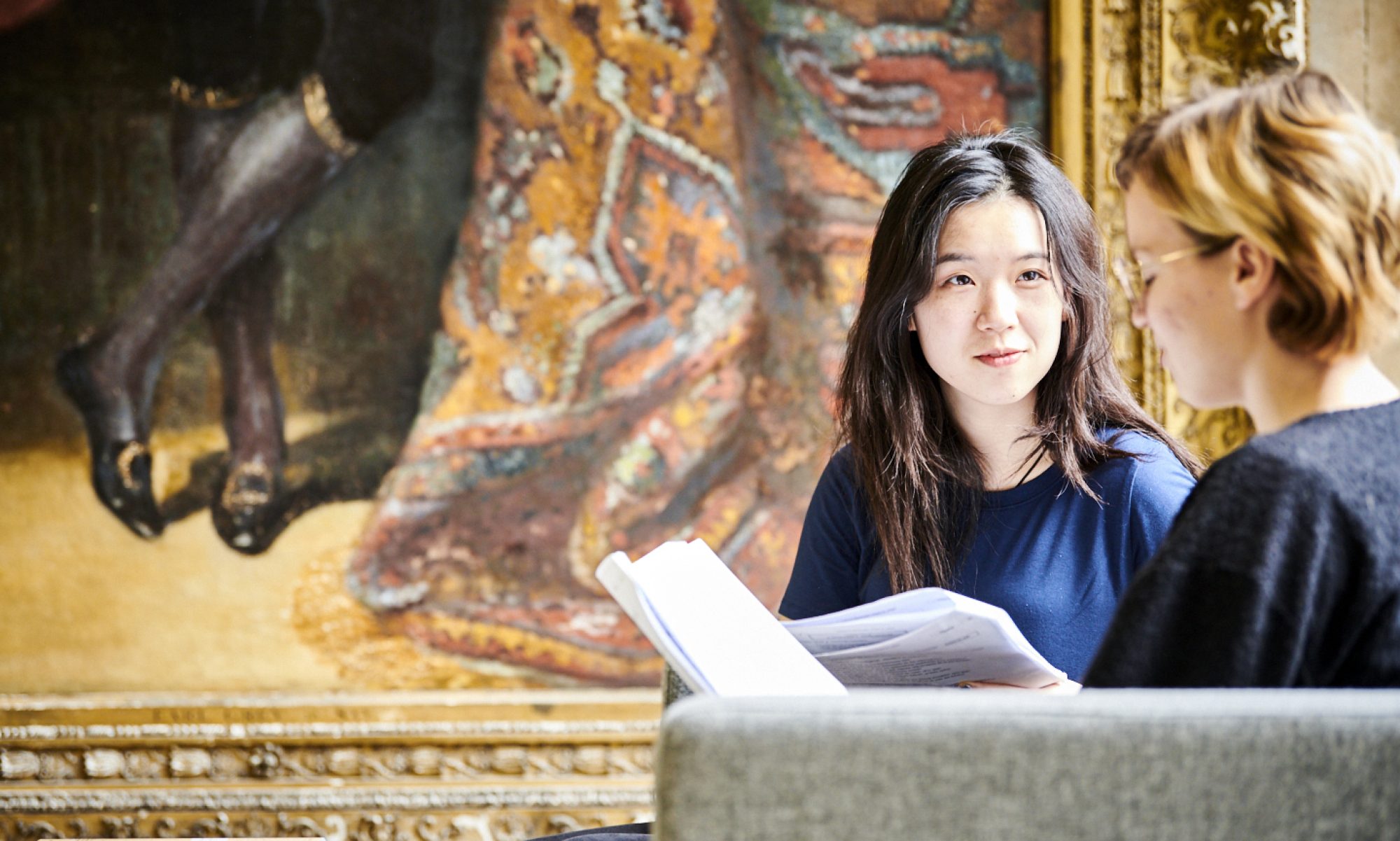Hello Everyone,
Congratulations on your offer of a place at Newcastle University! Following the UK government announcement regarding 2020 Exam results on Monday 17 August, we wanted to reassure you that your offer still stands and we are looking forward to welcoming you to the School of English Literature, Language and Linguistics in September. If you do want to find out more about the University’s approach please read our statement and our offer holder FAQs. I am a lecturer in Renaissance literature and the module leader for ‘Introduction to Literary Studies 2’ which introduces our first-year students to texts from the medieval up till the Romantic period. The specific texts change slightly every year, and I will circulate a reading list before the Christmas break.

Your Induction
Our flexible and enhanced University Induction programme for new students will provide you with a warm welcome and introduction to Newcastle University and Newcastle University Students’ Union (NUSU).
From Monday 28 September you’ll be able to access our Induction programme on Canvas – our Virtual Learning Environment. All information and activity will be offered online and we’ll send you full instructions on how to access Canvas the week before term starts. Some activities may include on-campus opportunities, but these will be dependent on physical distancing requirements at the time and will follow Covid-19 safety guidelines.
You’ll also receive school-specific induction information in the near future, designed to introduce you to the School of English Literature, Language and Linguistics and your degree programme. This will include everything you need to know before starting, including selecting optional modules, accessing your timetable and reading lists.
Frequently asked questions and COVID-19
We’re regularly updating both our COVID-19 FAQs and our Student Experience 2020 guide with all the latest information you need about starting your course as the Covid-19 situation continues.
Pre-arrival activities
I thought it would be useful here to suggest some more general reading and listening that you can do now in order to get to grips with some of the conversations we’re going to be having throughout your undergraduate degree. You by no means need to look at all of these!
General: why we read, and how we frame arguments
Studying literature is not just about encountering new books, it is also about learning how and why we read them. If you have the time, I recommend that you look at Andrew Bennett and Nicholas Royle’s An Introduction to Literature, Criticism, and Theory (5th edition, 2016) at some point this summer. It is a highly readable guide to literary criticism, with short chapters focusing on themes (e.g. narrative, ghosts, the colony) with concrete examples of how each theme can be applied to a certain text. You can browse a copy on Google Books (which, by the way, is a useful resource for finding academic books online) or you can try searching for this title as a PDF online, before deciding if you want to buy a copy. There are numerous editions of this book: the more recent have some additional chapters, but most of it is the same whichever edition you use.
Thinking about pre-modern race
One of the main questions that we will be exploring in ‘Introduction to Literary Studies 2’ is as relevant to the study of literature as to history: how can we meaningfully engage with texts which seem culturally and aesthetically distant from our own context? Part of the way that we practice this is not just by learning about the historical contexts and literary genres of the past, but also by learning how to spot the way literary critics and historians frame their interpretation of a text.
This summer we have seen how important it is for all of us to confront our colonial legacy in Britain and beyond, and there are renewed calls on universities to decolonise their curriculums. The next few resources are ones that I have found helpful in educating myself about how we can examine earlier historical periods through this critical lens:
1. Geraldine Heng’s The Invention of Race in the European Middle Ages (2018) is an important text which questions the common assumption that concepts of race and racism only began in the modern era. For a shorter introduction, you can read this exhibition by Heng.
2. For an excellent demonstration of how two twentieth-century writers (J.R.R. Tolkein and Toni Morrison) approached the issue of race in Beowulf (one of the texts we study in Introduction to Literary Studies 2),read this short article by Dorothy Kim (2019).
3. For another great introduction to the topic of studying Shakespeare and race, listen to this podcast from the Globe Theatre with Farah Karim Cooper, Ayanna Thompson and Noémie Ndiaye. In this podcast they focus on one of the texts we will be studying on ILS2 (Titus Andronicus).
Self-aware history
As students of both English and History, you should find Natalie Zemon Davis’ The Return of Martin Guerre (1983) a great way into thinking about the relationship between literature and history, women’s history, and the fine line between fabrication and trial records. She was the consultant on a film of the same title (released 1982), and her book was written to fill in the uncertainties that were inevitably left out of the film’s more stream-lined narrative. This book provoked a famous discussion between Zemon-Davis and her main detractor, Robert Finlay, about the methods historians use to interpret women’s history. If you do not want to read the full book, this blog post by Claire Potter (2018) is worth reading as it explains why this book and the discussion around it are so important for students. It includes links to that original exchange between Finlay and Zemon Davis too.
These suggestions are intended to make you think about the relevance of studying earlier historical texts and periods today. My colleagues and I would love to hear more from you about what you discover, so please do feel free to get in touch with us through email or social media, for example on the Twitter hashtag #NCLReady.
All the best, and I look forward to welcoming you to Newcastle soon!
Kate De Rycker
Lecturer in Renaissance Literature
School of English Literature, Language and Linguistics

